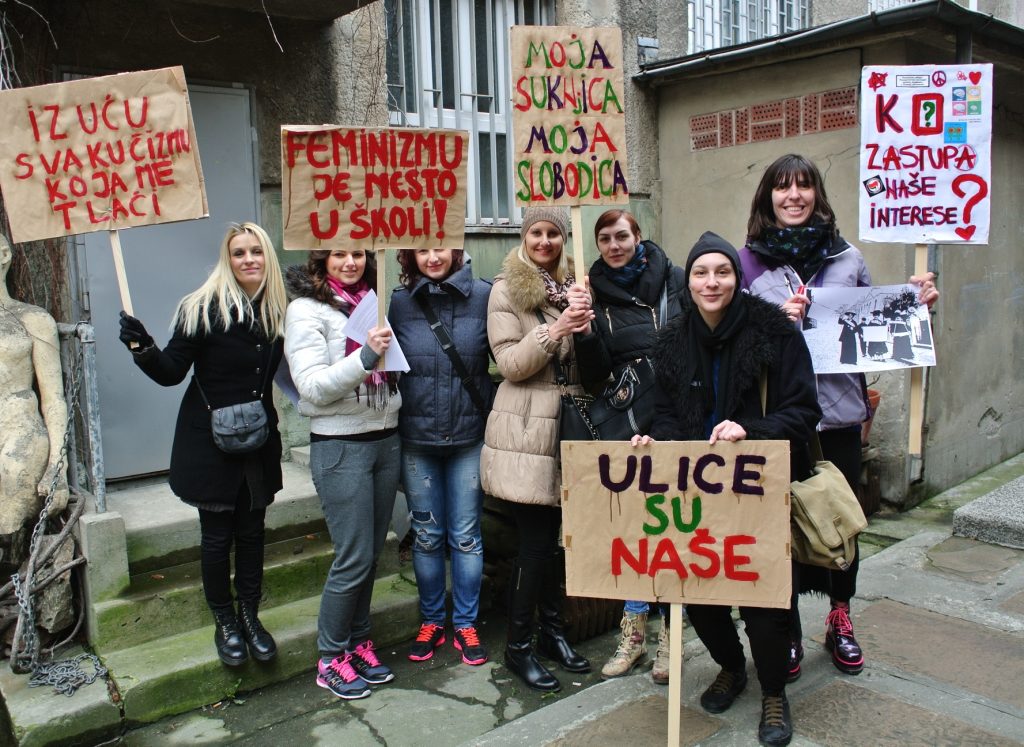Kvinna till Kvinna in Serbia
Why we work in Serbia
Politically, Serbia is marred by rising nationalism, corruption and low public trust. As many war criminals hold powerful positions, Serbia’s wartime past remains sensitive.
There is simmering tension with Serbia’s neighbours, especially Kosovo. Kosovo declared independence in 2008, but Serbia does not recognise the country.
Traditional values in society contribute to discrimination of women – politically, economically and socially. Minority groups, like the Roma or disabled women, are particularly vulnerable.
In this context, women’s rights receive little attention.
Gender-based violence is a major problem. As many as one in two Serbian women has faced domestic violence. Each year, multiple men murder their female partners. Support services for victims/survivors are woefully underfunded, and mainly provided by women’s rights organisations.
In theory, Serbia has a range of laws to combat discrimination, including a progressive law on the prevention of domestic violence. Few of these laws are fully implemented, however.
When women’s rights organisations speak up, they face tough opposition. Especially when mentioning Serbia’s role in the Yugoslav wars or the independence of Kosovo, activists risk harassment or even violence.

How we support women in Serbia
Together with our partner organisations in Serbia, we work to:
- Prevent gender-based violence and support its victims/survivors
- Offer psychosocial and legal support to women
- Educate women, girls and relevant authorities on women’s rights
- Promote peacebuilding and combat militarism
- Work for reconciliation in the Balkan region and document Serbia’s war history
- Advocate for women’s rights, with a focus on minorities such as Roma women
- Promote women’s participation in politics and society